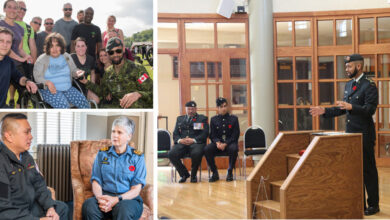Helpful Resources
Sleep Study reveals military spouses sleep worse while partner is deployed
According to a recent study published by the RAND Corporation, spouses of deployed service members report worse sleep quality than spouses whose partners were never deployed or previously deployed.
Additionally, the report found that spouses reporting sleep problems have more depressive symptoms, lower quality of physical health and lower relationship satisfaction.
“Although past research has demonstrated that service members are at high-risk for sleep disturbances, this is the first study to describe the prevalence of sleep problems among military spouses, as well as the consequences of sleep disturbances in this important population,” said Dr. Stephanie Brooks Holliday, the lead author of the Prevalence and Consequences of Sleep Problems in Military Wives study.
The study is based on the RAND Deployment Life Study, a survey that examines the impact of deployment on the health and well-being of military families and assesses a large sampling of American military families.
For this particular study, 1,805 spouses completed a number of questions regarding sleep quality, daytime impairment, fatigue, depressive symptoms, physical health and marital satisfaction.
According to the results, published in Sleep Health 2016, out of the participating spouses 44 per cent reported sleeping six hours or less per night; approximately 18 per cent reported sleeping less than five hours per night, which Holliday points out is far below the recommended sleep duration for optimal functioning; 20 per cent reported that sleep problems interfered with their daily life; and 33 per cent reported frequent daytime fatigue.
“Spouses of currently deployed service members reported worse sleep quality than spouses of service members who were never deployed or who previously deployed. However, we found no differences in sleep duration, daytime impairment, or fatigue according to service member deployment history, which suggests that other aspects of military life may be impacting the sleep of military spouses,” stated Holliday.
Researchers at the RAND Corporation, based out of California, decided to analyze this aspect of military family life since little research is done focusing on sleep problems associated with military spouses, “despite the fact that sleep problems are associated with a host of negative physical and mental health consequences.”
“For this reason, we thought it was important to understand how common sleep problems are among military spouses, and to examine the ways that sleep problems may affect the mood, health, and relationships of military spouses,” noted Holliday.
Holliday hopes that in the future studies can be done on what improving sleep can do for the mental and physical health of veterans and military spouses and their relationships.
Going forward, the researchers hope that the study will help military spouses when it comes to screening and intervention efforts.
“For instance, screening for sleep problems could become a standard practice for providers in the military health system who treat the spouses and family members of service members. Once spouses with sleep problems have been identified, they can then be referred to evidence-based treatments, such as cognitive-behavioral therapy for insomnia. In addition, there is an increasing emphasis on programs that promote the resilience of military families. These programs often address mental and physical health, and we hope that sleep will become a critical domain addressed by these programs as well,” said Holliday.










